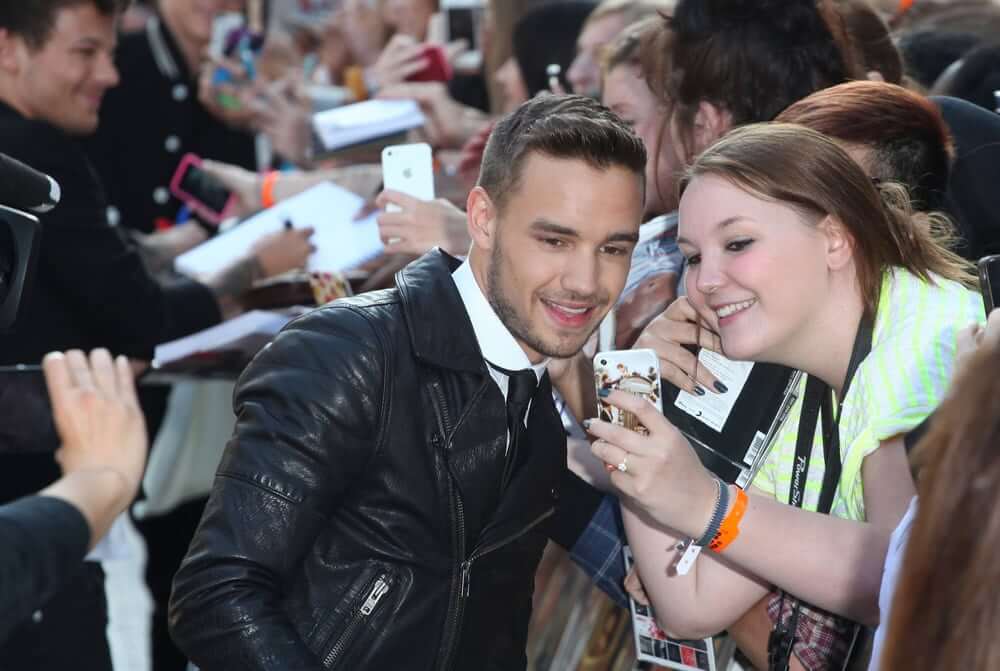In an era dominated by social media and constant connection to our favorite TV shows, movies and music, many of us find ourselves forming emotional bonds with celebrities and public figures we’ve never met.
These one-sided relationships, known as parasocial relationships, can significantly impact our mental health, particularly when we experience the loss of these public figures. The recent passing of Liam Payne, a beloved member of One Direction, serves as a poignant example of how these relationships affect fans on a personal level.
What Are Parasocial Relationships?
Parasocial relationships are one-sided emotional attachments that individuals develop toward media figures, celebrities, or fictional characters. Unlike traditional relationships, where interaction is reciprocal, parasocial relationships exist in a one-way, with fans feeling a sense of connection despite having no real-world interaction. This phenomenon is not new; research from Horton and Wohl in the 1950s first identified these emotional bonds, primarily in the context of television personalities.
The Emotional Investment in Celebrity Figures
For many fans, celebrities represent more than just entertainment; they often symbolize aspirations, values, and shared experiences. The bond fans develop with celebrities can evoke feelings of friendship and loyalty, resulting in profound emotional investment. This attachment can become particularly intense in cases where fans have grown up alongside these figures, experiencing their highs and lows through music, interviews, and social media.
In the case of Liam Payne, fans have followed his journey from a young boy in One Direction to a successful solo artist. His struggles, triumphs, and personal growth resonated deeply with fans, forging a strong emotional bond that extends beyond simple admiration. His recent and sudden death has shocked those who loved and knew him through a parasocial bond. This raises the question of how a celebrity’s death affects their fans.

The Impact of Celebrity Deaths on Fans
When a celebrity passes away, the grief experienced by fans can be unexpectedly intense. This emotional response can stem from several factors:
- Loss of Connection: Fans often feel a profound sense of loss when a beloved figure dies, as they may have relied on that celebrity for inspiration, comfort, or a sense of belonging. The unexpected nature of death can exacerbate these feelings, as fans grapple with the reality that they will no longer be able to follow their favorite figure’s journey.
- Shared Grief: The death of a celebrity often sparks collective mourning among fans, creating a sense of community as people come together to share their grief. This shared experience can be comforting but may also intensify feelings of sorrow.
- Identity Crisis: For some, a celebrity represents a significant part of their identity. The loss of that figure can lead to feelings of emptiness or confusion, particularly if their relationship with the celebrity played a role in their self-image or worldview.
Mental Health Consequences for Fans
The impact of losing a celebrity can lead to various mental health consequences for fans, including:
- Increased Anxiety and Depression: The emotional weight of losing a public figure can exacerbate existing mental health issues. Fans may feel heightened anxiety or depression, stemming from their grief and a sense of helplessness regarding the situation.
- Isolation: While social media can provide a platform for collective grieving, it can also lead to feelings of isolation. Fans may struggle to find individuals in their real life who understand their connection to the celebrity, leading to a sense of loneliness.
- Escapism: In the wake of a celebrity’s death, fans may turn to social media, fan forums, or other online spaces to cope with their feelings. This behavior can provide temporary relief but might lead to unhealthy escapism if it prevents fans from addressing their emotions in more constructive ways.
Navigating Grief in the Age of Social Media
Social media plays a significant role in how fans process grief and connect with others. Platforms like Twitter, Instagram, and TikTok allow fans to share their thoughts, feelings, and tributes to their celebrity. This communal aspect can foster healing but can also lead to oversharing or unhealthy obsession.
For instance, after the death of a celebrity, remembrance videos and nostalgic memories that “involve” them often trend on social media, allowing fans to express their grief collectively. However, it’s essential to recognize when such engagements become detrimental. If fans find themselves spiraling into negative thought patterns or unable to move past their grief, it may be time to seek help.
Finding Balance and Healing
Understanding the nature of parasocial relationships can help fans navigate their feelings more effectively. Here are some strategies for managing emotions related to celebrity losses:
- Acknowledge Your Feelings: Recognizing that it’s normal to feel sad or upset about a celebrity’s death can be a healthy first step in processing grief.
- Limit Exposure: While it’s tempting to consume endless media related to a celebrity’s passing, taking breaks from social media can help mitigate feelings of anxiety and sadness.
- Seek Support: Connecting with friends or joining online support groups can provide an outlet for fans to discuss their feelings and find community.
- Engage in Self-Care: Finding healthy ways to cope with grief—such as journaling, exercising, or pursuing hobbies—can aid in emotional healing.
- Consider Professional Help: If feelings of grief become overwhelming, speaking with a mental health professional can provide valuable support and coping strategies.
Grieving a Loss
Parasocial relationships with celebrities can deeply influence our mental health, especially when those figures pass away. The emotional bonds we form can lead to intense grief, anxiety, and a sense of loss. Understanding these dynamics is crucial for fans navigating their feelings in a world where celebrity culture is ever-present. By acknowledging our emotions and seeking healthy outlets for grief, we can find balance and healing in the wake of loss.
If you or someone you know is struggling with the emotional impact of a loss, it’s important to recognize the depth of these feelings and seek support. As we continue to celebrate the lives and legacies of figures, let’s remember to take care of our mental health and foster connections that support our well-being, both online and offline.










